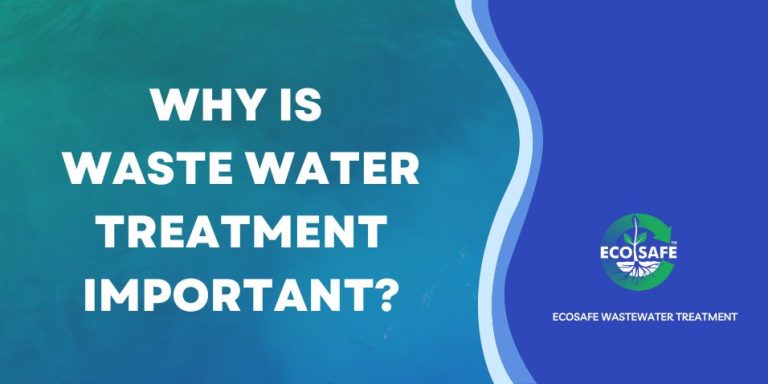Reclaim Waste for Beginners
Reclaim Waste for Beginners
Blog Article
How Reclaim Waste can Save You Time, Stress, and Money.
Table of ContentsThe smart Trick of Reclaim Waste That Nobody is DiscussingThe Single Strategy To Use For Reclaim WasteReclaim Waste Things To Know Before You Get ThisUnknown Facts About Reclaim WasteNot known Factual Statements About Reclaim Waste
Explore the kinds, incidents, and forms of fluid waste. Domestic sewer waste refers to the waste and items from a household septic container. This sort of waste is created by human beings in homes, schools, and other buildings. This only consists of sewage-disposal tanks that have a drainpipe field. The correct monitoring and disposal of residential sewer waste call for liquid waste to be moved to a sewage therapy plant where the appropriate techniques and tools are related to cleanse and deal with waste.
Industrial waste usually includes possible hazards, such as flammable products or a mixture of liquid and solid waste items, and calls for a more advanced and thorough disposal process. The disposal of commercial waste generally entails the filtration of waste prior to transport to ensure risk-free and correct disposal. Hazardous waste is created from results and overflow of commercial processes and manufacturing.
This kind of waste can not utilize the exact same sewer management transportation or processes as septic or industrial fluids. The hazardous waste monitoring procedure calls for the examination and screening of fluid waste before it goes through the disposal procedure (liquid waste removal). Overflow waste is the fluid waste that originates from overflow and excess stormwater in highly inhabited areas or cities
Overflow waste can cause contamination and flooding if not managed appropriately. Discover more regarding drain cleaning and waste administration. Making certain correct waste monitoring can protect against calamities and lower ecological damage. Both people in household setups and experts in commercial or production sectors can take advantage of recognizing the procedures and policies of fluid waste monitoring.
Rumored Buzz on Reclaim Waste
Contact PROS Solutions today to learn more about our waste monitoring and disposal services and the appropriate ways to take care of the fluid waste you produce.
(https://zenwriting.net/reclaimwaste1/innovative-industrial-wastewater-treatment-solutions-by-reclaim-waste)Do you recognize what takes place to your water when you pull the plug, purge the toilet or drain the washing device? No? Well, it deserves knowing. This so-called 'wastewater' is not only an essential source but, after therapy, will certainly be launched to our land, waterways or the sea. Utilized water from bathrooms, showers, bathrooms, kitchen area sinks, washings and commercial procedures is understood as wastewater.

water made use of to cool equipment or clean plant and devices). Stormwater, a form of wastewater, is drainage that flows from agricultural and urban areas such as roofing systems, parks, yards, roads, paths and seamless gutters into stormwater drains, after rainfall. Stormwater flows untreated directly to neighborhood creeks or rivers, eventually reaching the sea.
A Biased View of Reclaim Waste
In Queensland, many wastewater is treated at sewage treatment plants. Wastewater is moved from residential or commercial websites through a system of sewers and pump stations, recognized as sewage reticulation, to a sewer therapy plant.
The Department of Natural Resources encourages city governments regarding managing, operating and keeping sewage systems and therapy plants. In unsewered areas, local governments may require householders to mount specific or household sewer therapy systems to deal with domestic wastewater from toilets, kitchen areas, shower rooms and laundries. The Division of Natural Resources authorizes making use of family systems when they are shown to be reliable.
In some new communities, treatment of some stormwater to eliminate trash, sand and crushed rock has started utilizing gross toxin traps. Wastewater treatment occurs in 4 stages: Eliminates strong matter.
Wastewater then streams right into large storage tanks where solids settle and are eliminated as sludge. Oil and residue are skimmed from the surface. Utilizes tiny living microorganisms referred to as micro-organisms to break down and remove staying dissolved wastes and fine fragments. Micro-organisms and wastes are incorporated in the sludge. Gets rid of nitrogen and phosphorus nutrients that could trigger algal blossoms in our waterways and intimidate aquatic life.
Rumored Buzz on Reclaim Waste
Nutrient elimination is not readily available in all sewage treatment plants because it requires costly specialist devices. It is ending up being extra common in Queensland. Clear fluid effluent generated after therapy might still have disease-causing micro-organisms. If this effluent is launched right into rivers such as rivers or the sea, official site the micro-organisms will at some point pass away out.

A lot of wastewater moves into the sewage system. Under the Act, regional governments carry out approvals and permits for ecologically relevant activities (Periods) involving wastewater releases that may have a local influence.
Fascination About Reclaim Waste
Otherwise, examples are considered lab evaluation. Typically many tests are required to develop the degrees of each of the various toxins such as oils, hefty steels and pesticides in water. Tracking gives accurate details about water high quality and can validate that licence problems are being met. The details obtained via tracking gives the basis for making water quality decisions.
Report this page